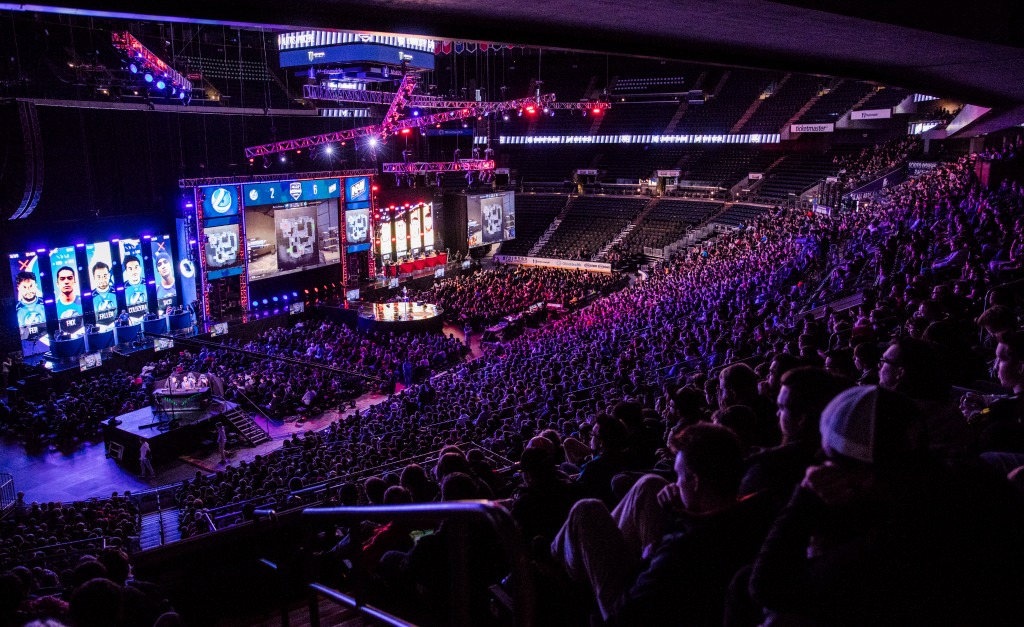
The rebooted Understanding Video Games MOOC helps high-schoolers explore a cultural force as big as movies, music or sports. (Photo: Steel Series via Flickr, CC BY 2.0)
A University of Alberta professor and his team, with the help of the Edmonton and Calgary public libraries, are offering high-school students the critical tools they need to better understand a powerful medium they encounter every day: video games.
"In my humble opinion, (video games) are the single most important cultural medium in the world … more than movies, more than music," said Sean Gouglas, senior director of interdisciplinary studies in the U of A's arts faculty.
The big business of gaming
Global video game revenue now accounts for more than the movie and music industries combined-$116 billion in 2016 alone.
Viewers logged more than 360 million hours watching the world championships of a game called League of Legends last year, with 36 million people catching the final game. To put that into perspective, only about 17 million viewers watched the final game of the 2015 World Series.
"We want to give kids the literacy for understanding computer games, in the same way they have a literacy for reading or watching a movie. They certainly know how to play them-and probably have some instincts for some of the things going on in them-but they may not have the knowledge or terms to understand them critically."
At the libraries' request, Gouglas rebooted the massive open online course, or MOOC, he developed for senior university students several years ago, called Understanding Video Games. In its first iteration, it attracted more than 29,000 students from 154 countries.
This time around, the course is simpler and more accessible to a younger audience, said Gouglas, with more video content and interactivity. Offered on the U of A's "eClass" platform, it has so far attracted 178 students in Edmonton and 28 in Calgary.
The first four lessons of the 10-part course cover basic terms. What is a game, for instance, and how do you interact with the game to make it do things? What does story mean in a game?
"Those fundamental building blocks allow the students to explore gaming culture and how people who play games construct meaning from them," said Gouglas. "Then we examine broader issues-how is sexuality used in games? How is race and violence used in games?"
Human sexuality, for example, can be infinitely complex, said Gouglas. But video games, by their very nature, can't be. A game ends up reducing the number of choices and options when sex is part of the story, therefore promoting a narrow definition of sex itself.
Take The Sims, the enormously popular strategic life-simulation video game. "The characters can have relationships, which are often summarized by fireworks and a 'Woohoo!'" said Gouglas. "And that one occurrence of fireworks represents all of the complexity of human relationships.
"Movie directors and novelists do much same thing, of course, reducing human experience to a single narrative. But when gamers actually take part in the story and construct avatars, it becomes even more important to be critically aware of the choices they make," said Gouglas.
The course includes a range of clips from popular video games and quizzes to keep students on track. If successful, Gouglas said he hopes it will one day be offered through the Edmonton and Calgary school boards. He's already working with one high school in Edmonton to offer it as part of the curriculum.